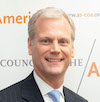It’s a shame for the people of Honduras that the country’s supreme court and military acted so clumsily to bundle the president, Manuel “Mel” Zelaya, off to exile in the middle of the night almost a week ago now. There is no getting over the visual images, which call to mind the worst excesses of extra-constitutional government across Latin America’s tumultuous history, leading directly to the vociferous and sustained outcry from across most of the political spectrum worldwide.
Those arguing that the Hondurans acted within their rights under their constitution miss the point. This is a fruitless line of argument that competes against every latent emotion now bursting to the forefront on Latin America. Whether or not it was technically legal, the coup in Honduras was ill-considered at best, and dramatically limited the options available to those seeking to shine the spotlight where it should be shone, squarely on the erratic and increasingly anti-democratic behavior of President Zelaya.
Arguments about the actions precipitating the forced exile of the president will go on. But now a much more urgent task confronts the international community as well as Hondurans themselves: what to do about it? The Organization of American States (OAS) has given an ultimatum to newly-installed President Roberto Micheletti and his team to restore the status quo ante by Saturday, July 4, when Zelaya has promised to return to Honduras. Micheletti has rejected the ultimatum, saying that if Zelaya returns, he will be arrested.
At that point all bets would be off. Violence could flare. Alternatively, even though Zelaya is no great democrat himself, the practical implication regionwide of allowing the current scenario to stand would be to undercut the foundations of a generation of U.S. and hemispheric policy. The United States faces a major dilemma.
Fortunately, as in Argentina and numerous other countries, there is a third option: moving forward the pending presidential elections, from November 29, 2009, to July or August 29, and moving the inauguration from January 27 to a date immediately after the elections. When Argentina has done this, even as recently (and ironically) as the day of the Honduran coup, nobody screamed or talked about the Inter-American Democratic Charter.
In Honduras, primaries have already been held and the candidates selected. The campaign was already well underway when the coup took place. Neither Zelaya nor Micheletti would be eligible to run, the former due to term limits he was attempting to circumvent, the latter because he already lost in the primaries. The OAS, rather than Venezuela, would then play a leadership role in organizing and monitoring the elections. The only question would be who runs the country between now and July or August 29, so as not to “reward” Micheletti and those immediately around him.
In any event, we’re now only weeks away if this is the decision to be taken. The Cardinal or another figure of national unity should consider putting his voice behind such an option, immediately to be supported by the United States, the OAS and other countries in the region. We need cooler heads to prevail during this difficult moment.
Time to get going organizing an election.



